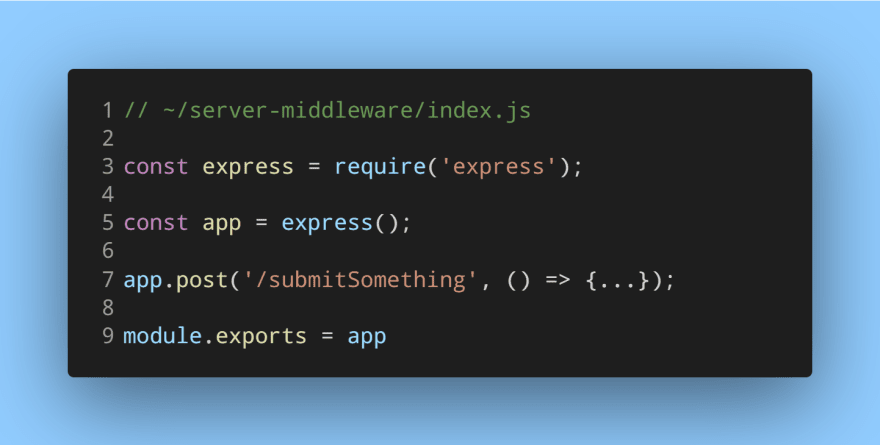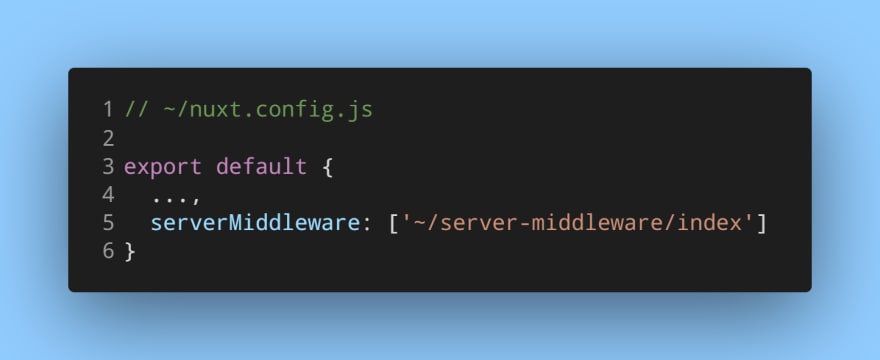Why would you want to create a custom server?
A Server-side Rendered (SSR) Nuxt.js application requires a Node.js server. This server renders a webpage and passes it to the client-side Vuejs. This server is implemented by Nuxt itself behind the scenes. However, this simple server makes it difficult to implement things like a POST or GET request, a Pusher channel, cookies, etc.
I needed to run a Puppeteer script on the server and thus extended the basic server provided by Nuxt.js by creating an Express server.
For a server-side rendered application, a Node.js server needs to be configured. Although Nuxt provides one for you, you can extend this server with serverMiddleware.
Note: While you can extend the server with serverMiddleware, you can also extend and control the application's routing with middleware.
Two things to keep in mind
Here are 2 things to take note of when creating an Express server in your Nuxt.js application -
1. Make sure to export the server
In a simple JavaScript/Node.js application, an Express server will be the one controlling and managing most of the application. But, in a Nuxt.js application, you need to export it because you are extending the server provided by Nuxt.js.
2. Mention the server file path in Nuxt.js config
This is mentioned in the documentation as well. Here is what worked for me:
Conclusion
It is very easy to extend the functionality of the default server provided by Nuxt.js. Remember, if you also want to control routing, you need to extend middleware.
For creating my custom Express server and writing this article, I mainly used the Nuxt.js documentation.





Top comments (2)
Thanks
Thanks I forgot the module.export